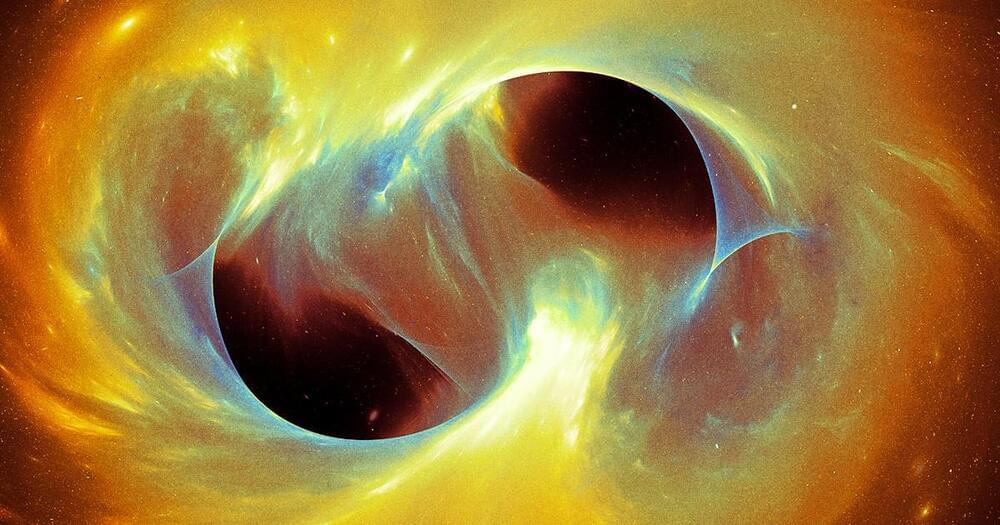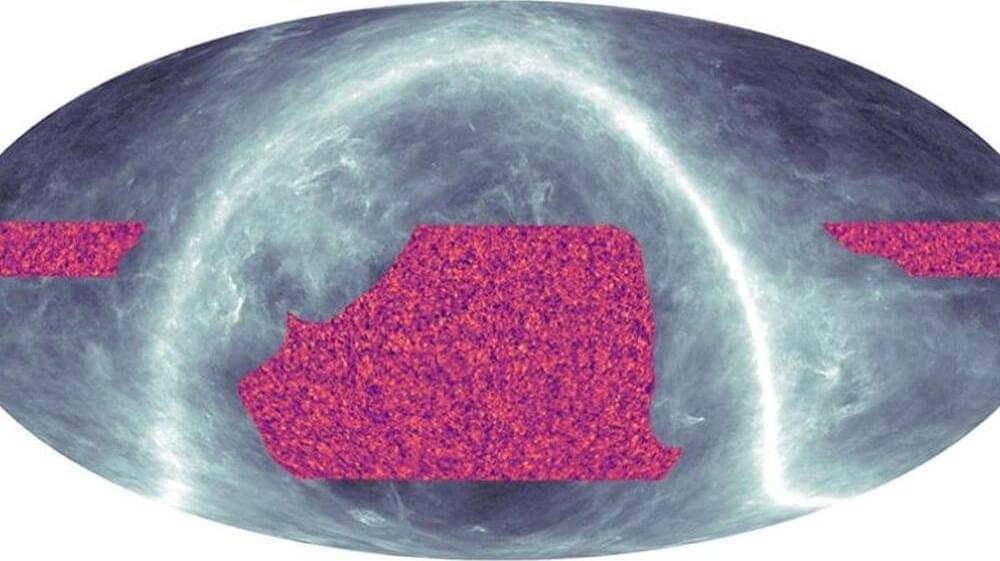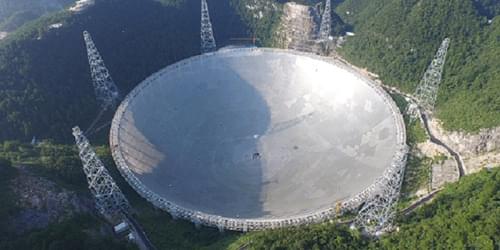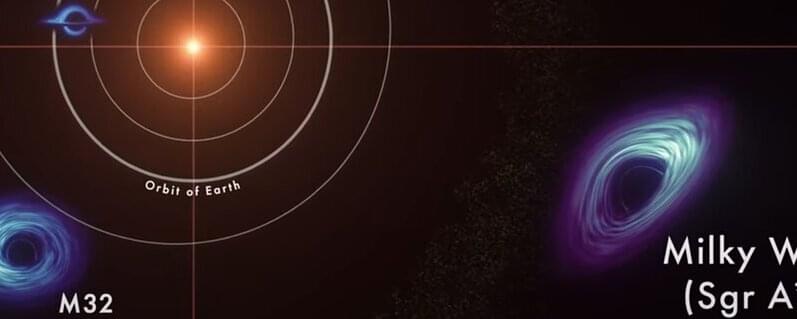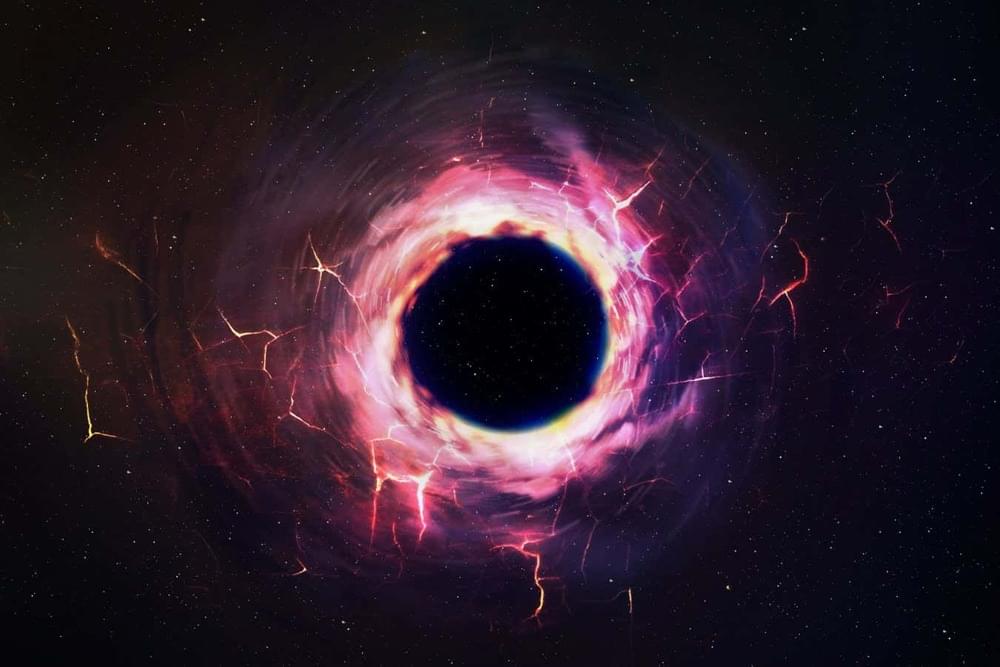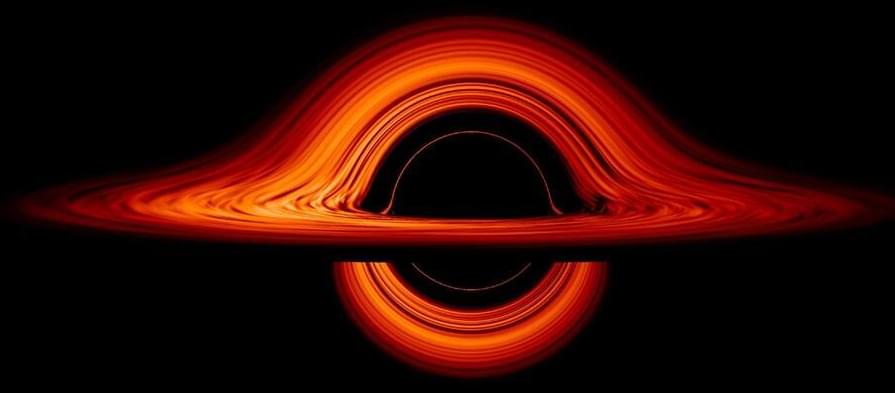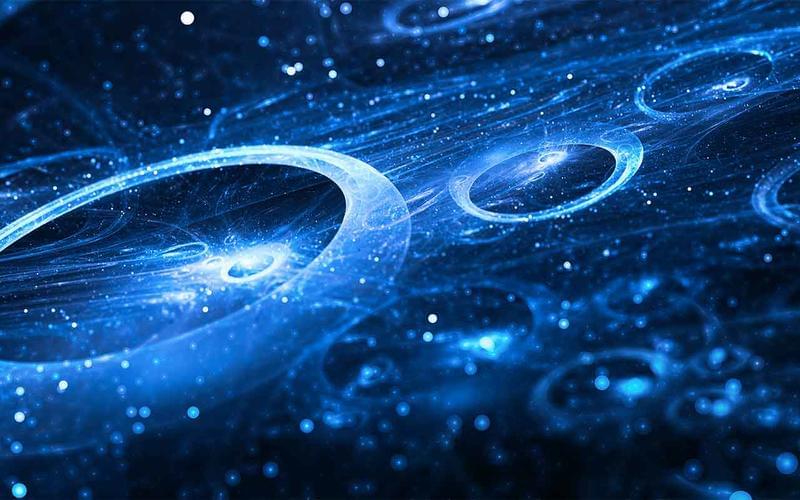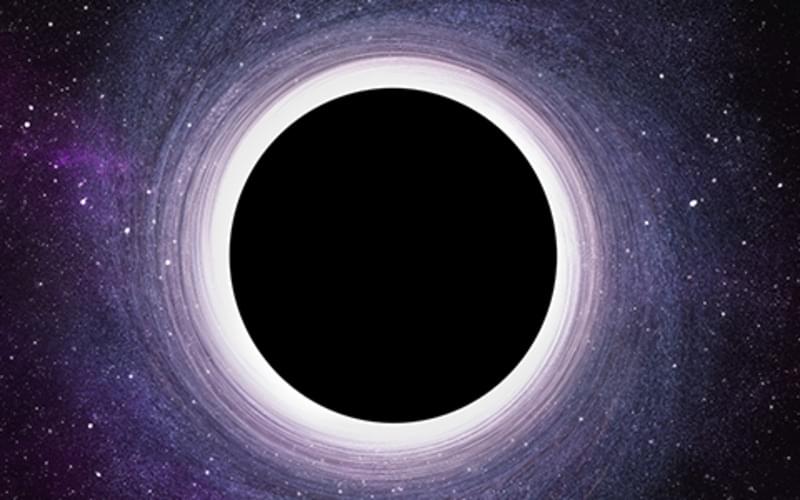May 5, 2023
Gaze Upon the Brutal Beauty of Four Massive Black Holes About to Crash
Posted by Shubham Ghosh Roy in category: cosmology
In an effort to understand the origin of our galaxies, astronomers have spotted an insane, galactic showdown for the ages: four giant black holes in dwarf galaxies destined to collide, though not all in the same place. But boy, did they score a grand slam of astronomy firsts.
Using NASA’s Chandra X-ray Observatory, the astronomers kept a close eye on two separate pairs of merging dwarf galaxies. One is in a cluster 760 million light-years away, the other, over 3.2 billion. Unfortunately, us humans are relegated to the nosebleeds for this one.
Still, we don’t need to be close up to understand the significance of the findings, which were published as a study in The Astrophysical Journals. According to the researchers, it’s the first evidence of large black holes in merging dwarf galaxies at all.
